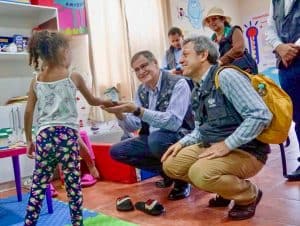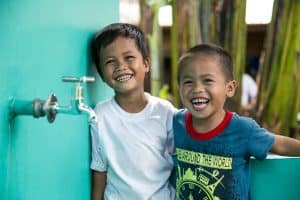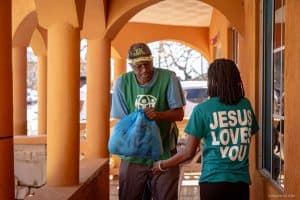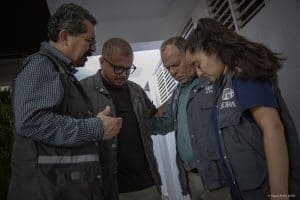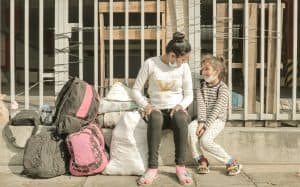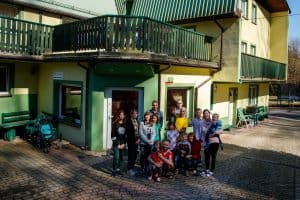As we stop to recognize World Literacy Day on September 8, the Adventist Development and Relief Agency (ADRA) continues to reaffirm its commitment to literacy as a foundational tool for achieving equality, individual empowerment and sustainable development. Michael Kruger, president of ADRA International, emphasizes the importance of literacy in ADRA’s work saying, “Education is a crucial element in breaking the cycle of poverty. Through literacy training and other programs, ADRA is able to help remove some of the barriers to education and provide support for the communities we serve.”
Because ADRA is a global network, we are able to tailor our literacy programs to meet the specific needs of diverse communities that include children, adults, and refugees. By providing access to quality education, ADRA empowers individuals with the skills needed to improve their lives and give back to their communities.
ADRA’s work is guided by the belief that literacy is a human right and a crucial step toward achieving equity and reaching our fullest potential. Today, we’d like to highlight just a few of ADRA’s ongoing projects in Africa, Southeast Asia, and Inter-America. By focusing on these areas, ADRA aims to create lasting change, one reader at a time.
Mali:
In Mali, the adult literacy Program began when the local ADRA office noticed there was a need among Internally Displaced Persons, or IDP’s in the region of Segou, to learn the local language Bambara, to read and write, and find ways to help financially support their families.
ADRA Mali constructed and renovated classrooms and shelters, turning them into accessible learning spaces for children and women. They also taught the IDP women soap making as a way to earn a small amount of money for their families. The women who attended these/this literacy and numeracy classes/literacy program were able to form a community, finding a network of support and friendship.
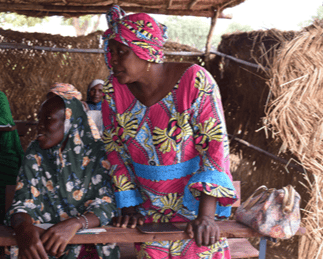
One beneficiary is Zeïnabou, originally from a village of Mali called Haïdara-wèrè. Zeïnabou speaks the sonrhaï language, which is her mother-tongue. However, in 2022, her and her family were forced to leave their village due to armed conflicts, and relocate to the ATTbougou’s IDP camp in Segou, Mali.
In Segou, Zeïnabou has not been able to communicate with the community around her because they speak Bambara, the spoken language in that region. She, along with her sisters and fellows spent their time being idle because in the camp, they didn’t have land to cultivate or a way to earn money. When Assita from ADRA Mali, came to encourage her and others to take part in the ADRA’s adult literacy and numeracy program, Zeïnabou was hesitant because her first priority is earning an income that will help feed her and her family.
However, after meeting Assita again, she agreed to join the literacy program. At first Zeïnabou felt lost, she’d never been to school. After six months attending the program she is learning to count and recite letters and words in the Bambara language. Now she’s able, little-by-little, to communicate with the people in her community. Through the program, she has also found a group of women who can support and learn from each other.”
India:
In India, education is guaranteed for children ages 6 through 14. However, that does not mean all children between those ages attend school. Children who live in slums, on the street, or have to work in order to help their families, aren’t able to go to school.
In order to give some of these children the opportunity for an education, ADRA India started the “School-on-a-Bus” program outside Chennai, on the southeast coast of India.This special bus travels to settlements where high numbers of children do not attend school.
Thanks to coordination with local schools and social workers, students are able to catch up on missed school and integrate back into their local schools. The local Ministry of Education also appreciates the program and has asked ADRA expand the program into other schools and villages.
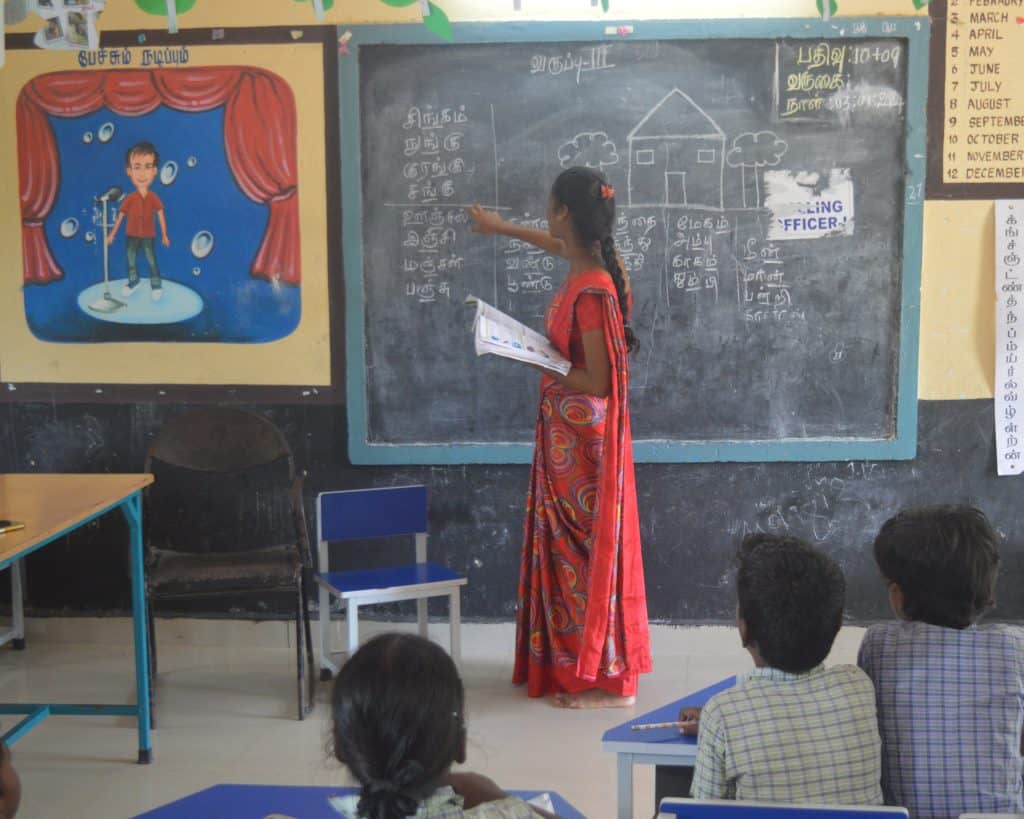
At age 18, Soniya lived with her parents in Anna Nagar. She worked in a jasmine garden for just 150 rupees a day (1.70 USD). Due to financial strain, her father’s alcoholism, and debt, Soniya worked in the jasmine garden even during the weekends.
Soniya excelled in primary school, however, when it was time for her transfer to a new school, lack of transport and unsafe roads caused her to drop out. ADRA, recognizing other children were facing these widespread issues, initiated the Mobile Low Cost School project. Through this project, a specially-designed “Yellow Bus” brought educational support to children in the area and provided home visits. The Yellow Bus rekindled Soniya’s passion for learning.
Unfortunately, Soniya was again forced to drop out of school due to worsening financial conditions for her family during the COVID-19 pandemic. ADRA was able to provide support through cash assistance and classes organized through a community speaker system, allowing Soniya and other children to continue their education at home.
Now, Soniya is studying for a diploma with plans to become a teacher and has been interning at the very same school where her education journey began.
El Salvador:
In El Salvador, ADRA has created more than 120 literacy schools that have provided life-changing opportunities for many in the country. The program doesn’t just teach students to read and write, but gives them confidence to continue their education and find jobs.
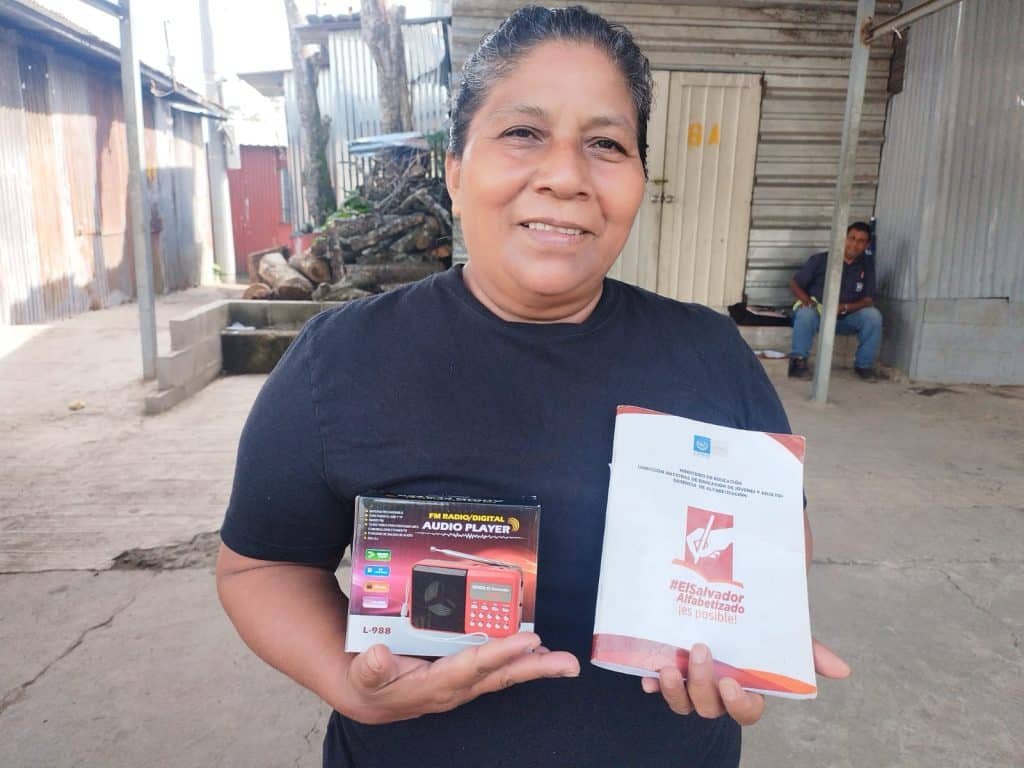
More than 8,000 people have participated in ADRA El Salvador’s literacy program over the years, and there are now more than 1,000 students currently enrolled across the country. In addition to literacy training, the program also allows people who didn’t finish their high school degree, to complete it, and receive their diploma. In 2023, ADRA helped 1087 people learn to read and write or finish their diplomas.
Recently, in the city of Santa Tecla, Mayor Henry Flores realized 25 of his employees did not know how to read or write. Partnering with ADRA El Salvador, Flores agreed to let his employees work until 3:00 PM, and then attend ADRA’s literacy program. At the end of the program, they had learned to read and write, and a few even earned their high school diplomas. This program has allowed his employees to look for higher-paying jobs and move up in the government. Now, other mayors in different cities are following Santa Tecla’s example and allowing their employees the same opportunity.
ADRA’s commitment to literacy is not just about teaching people to read and write, but about opening doors to opportunities, enhancing self-sufficiency, and building resilient communities. As the world marks this important day, ADRA’s network offices, staff, volunteers and beneficiaries stand as a testament to the transformative power of education.
